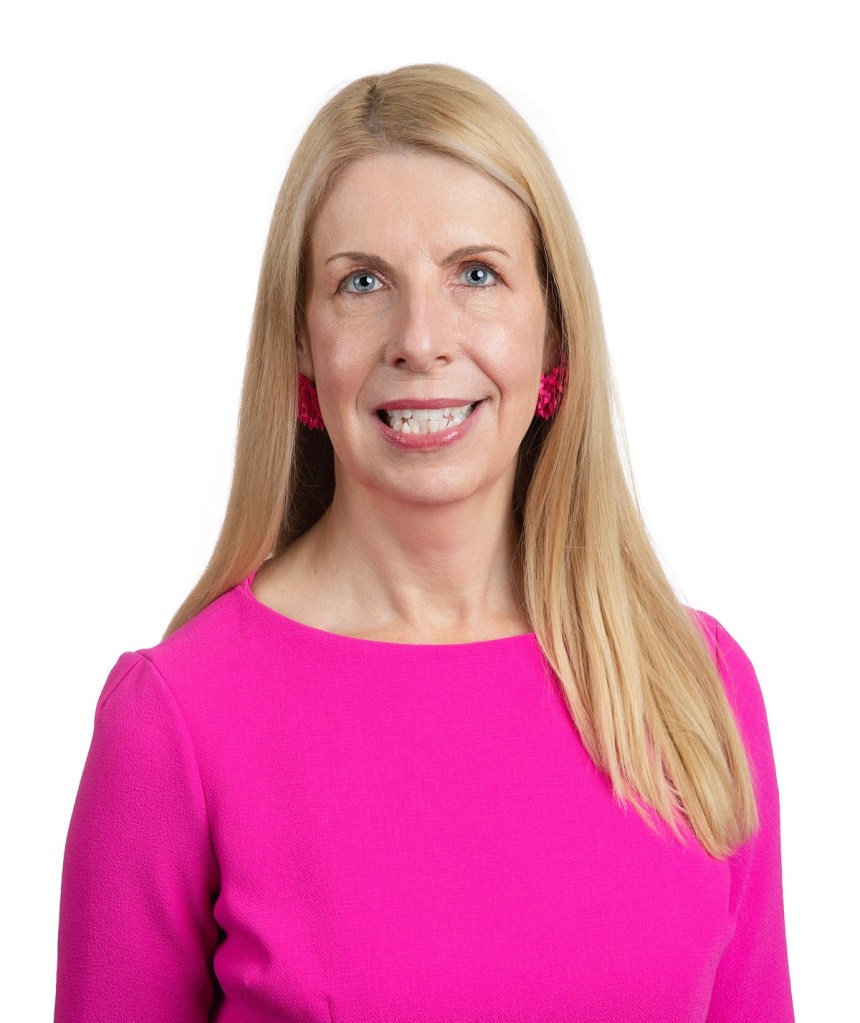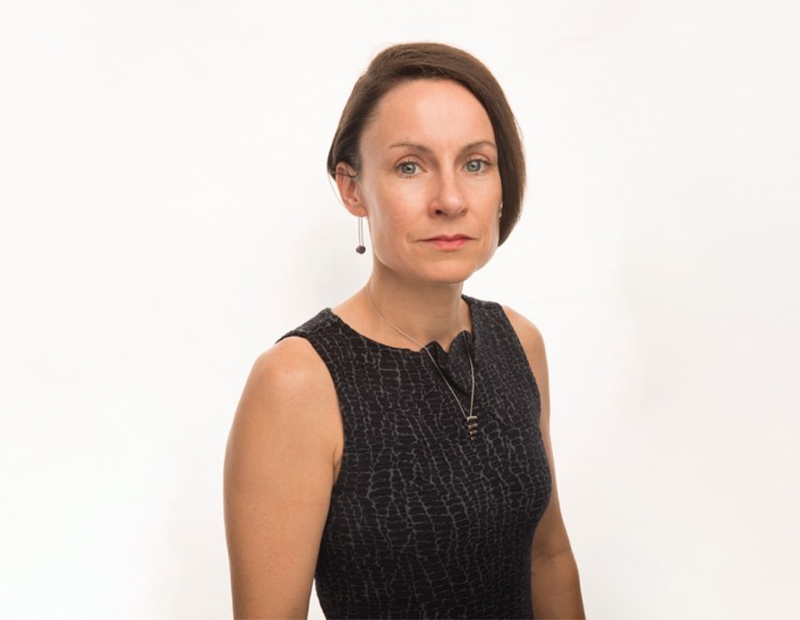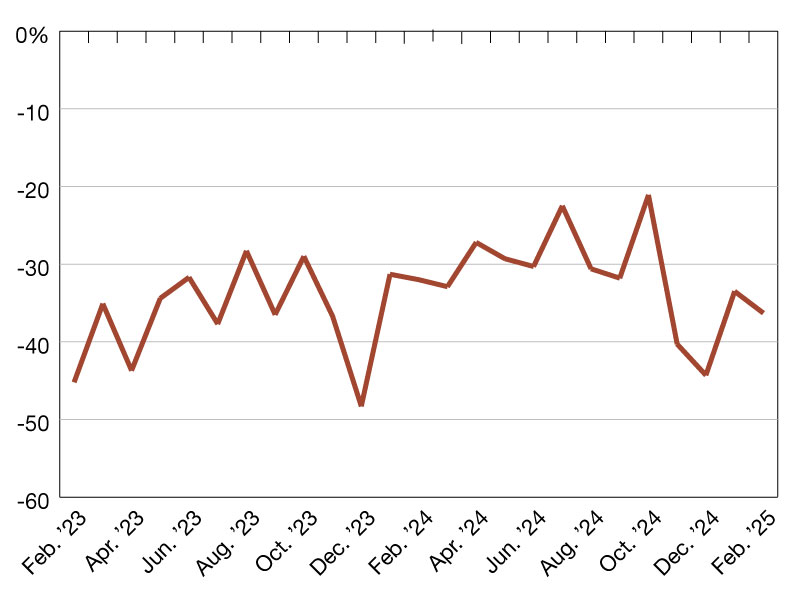Meet the Women Disrupting CRE
This Women's History Month, we talk about crooked corporate ladders and tricky glass ceilings with the best in the industry.
Women have long been integral to real estate, though recognizing their achievements has yet to catch up with their efforts. Systemic disparities can persist, and they’re all-too-familiar to women in commercial real estate.
This year again, in celebration of Women’s History Month, Commercial Property Executive asked female real estate professionals to share their experiences—both good and bad. Our goal is to help build a community where gender, status or role are irrelevant and everyone can learn from, identify with, and be inspired by the other.
Gender inequality is real

Sarah McCann, real estate strategy director at Vocon, told us that going to an all-girls school at the age of five taught her the fundamental gender inequality as a baseline in the corporate world.
For Caroline Gadaleta of JLL, gender inequality is reminiscent of picking teams for kickball on the playground, when the boys would get picked first even if they weren’t athletic.
Today, Gadaleta is an executive managing director & head of Tri-State and Greater Philadelphia property management, but she vividly remembers her first “brush with being passed over” when she was a young general manager at a firm in New York City. A man, who had been hired after her, was promoted to vice president. She wasn’t.
At the time, she thought that she just “wasn’t managing up enough,” so she pushed herself more, meeting with her boss to show her good work and volunteering for every stretch assignment, but that only made her tired, she said. It all started to make sense when she noticed her male colleagues going to play racquetball at a men-only club every day at lunch, while she toiled at her desk.
Karen Whitt, Colliers president of real estate management services and 2024 CREW Network President, also felt it. In her late 20s, despite being recognized as the top revenue producer and overseeing more assets than her male counterparts, she found out that she was the lowest paid.
“The reason given was that my male colleagues had families, while I only had a husband and a dog,” Whitt said.

She responded swiftly. Instead of engaging in prolonged negotiations, she photocopied the D.C. Human Rights Act, highlighting the provision on equal pay for equal work, attached a sticky note saying “You should read this” and sent it to her superior.
“That day, I received a $22,000 raise, and for the next two decades, the individual involved continued to refer business to me,” Whitt reminisced. “It underscores the importance of raising awareness, as sometimes people may not be fully aware that their actions are unfair.”
“The best strategy to prevent these inequalities a generation from now is to put more money in the hands of women,” believes Camille Renshaw, CEO & co-founder of B+E, and a trailblazer in the tech, CRE and financing industries. “And that will only happen if they are taught to invest the money they are making in their own real estate. We need to talk about money more openly.”
A shift in power
While talking about diversity and inclusion, we must admit that the positions women hold in CRE have been changing, from mainly administrative to high-level leadership.
“When I used to attend industry events early in my career, there were very few women,” said Whitt. “Now, there are always really long lines for the ladies’ room at events and it is the only time I am happy to wait.”
We do live in far more “equal” times than decades ago, but we’re still far from women actually being equal to men. And this is where DEI plays a vital role.
The industry is starting to recognize the business benefits of bringing women and all forms of diverse talent to the table. “It’s no longer just the right thing to do,” said Whitt.
Companies increasingly prioritize recruiting, retaining and advancing women and other minority groups, and at some point we will see faster progress. Mid- and junior-level employees are already “phenomenally diverse,” according to Gadaleta, and these groups will grow into diverse leaders.
But getting these leaders to the next level is quite difficult, which is why CREW Network has been promoting business networking opportunities and leadership development for women, and also rolling out career outreach programs for those who are at the beginning of their real estate careers.
Of mentors and mentees
McCann is lucky to have had her mom’s example; her mom, Deb Donley—founded Vocon in 1987 and grew it to a top 100 architecture and design firm. From a young age, she spent her life close to the business environment thanks to her. Her mother taught her how to work with clients, understand their needs and develop solutions by following her example.
“She has taught me to trust my judgment and instincts, and this has been critical for my ability to succeed with client initiatives,” McCann admitted.

But not every woman working in CRE had a leader in the industry for a mom. Renshaw is certain that she would have accelerated much faster in tech had she had female role models as a teenager and college student.
“Often when I hit obstacles, I thought it was just me and my shortcomings, never market forces that work against women,” she said. “It’s much easier to shake off obstacles and build confidence when you know the problems are systemic, that they can change, and it’s not your personal shortcomings creating friction.”
Regardless of gender, everyone can use the help of a mentor, a role model, assigned or chosen. Whitt didn’t have someone specific, but she actively sought out people, requesting their time and insight. Anyone can be a source of guidance, she believes. For example, collaborating with a college student helped her better understand recruiting younger talent and navigating technological shifts; a former boss consistently challenged her perspectives by holding up a mirror, even when she initially resisted self-reflection.
Gadaleta shares Whitt’s experience. Anyone can lead to a lessons, even those she never meets face to face. Here, she’s referring to her favorite type of books: autobiographies and memoirs. A recent read was about a famous Fortune 50 CEO, a man. Two men had taken him under their wings—because he reminded them of themselves—and created a leadership role that launched him into the stratosphere.
LISTEN TO: CREW Network Podcast—Female CRE Leaders’ Top Concerns
“This is exactly what we mean when we say women are at a disadvantage. I am not taking anything away from this man. He was smart and capable. But I bet other people could have done what he did with the kind of support and sponsorship he had,” she stated.
Mentoring people is also a way to learn, and a lot of times, mentees bring challenges that the mentors themselves are dealing with. “It’s the universe’s dirty little trick, forcing me to solve my own problems while helping someone else. Works like a charm!” Gadaleta quipped.
To make a point, she told us a story about her niece, a chef, who was temporarily filling in for the executive chef at work, who had left.
“She had been promised a promotion, but management had not yet come through. I gave her talking points and a suggested timeline for follow-up. The next day, I met with my own manager to discuss a promotion I had been wanting for a while. Guess what? He agreed on the spot! Helping my niece helped me solve my own issue,” Gadaleta said.
Change is happening

The post-pandemic workplace has experienced a significant shift in how employees view work, including job security, pay equity and inclusion. These have led to discussions and changes that benefit women and have brought some of them back to the workplace.
“It’s too early to tell if women’s advancement has recalibrated,” Whitt thinks.
Recent dramatic changes in the CRE market have increased opportunities for women, according to McCann, particularly in design and architecture, where demand for innovative solutions is always high.
Similarly, the management sector is also thriving, according to Gadaleta, with more women employees in client-side asset and investment management, or property and facility management.
Brokerage, however, is still a tough world for women, she added. Where compensation is commission-based, many young women wonder how they will be able to take time off to recover from childbirth and not lose their clients or businesses. But COVID-19 has led to more flexibility in work models, which has been great for families with obligations at home, especially working moms.
However, women’s role as caregivers will likely continue to provoke windmill melees. As long as these responsibilities fall on their shoulders, advancement in the workplace is a tall order. There are very hopeful signs though, believes Gadaleta, as paternity leave and men generally getting more involved in child-rearing are more common today.
Having family responsibilities also means that women cannot take clients out every night or play golf on weekends. Nor do they want to, considers Gadaleta. The “boys club” mentality will be hard to break.
“My sense is that it is easier for men to find ways to bond with each other through sports, activities, dinners out etc. than for women. Women just often have other priorities. And relationships are huge in the real estate business.” Which is something women will have to figure out how to get over.







You must be logged in to post a comment.